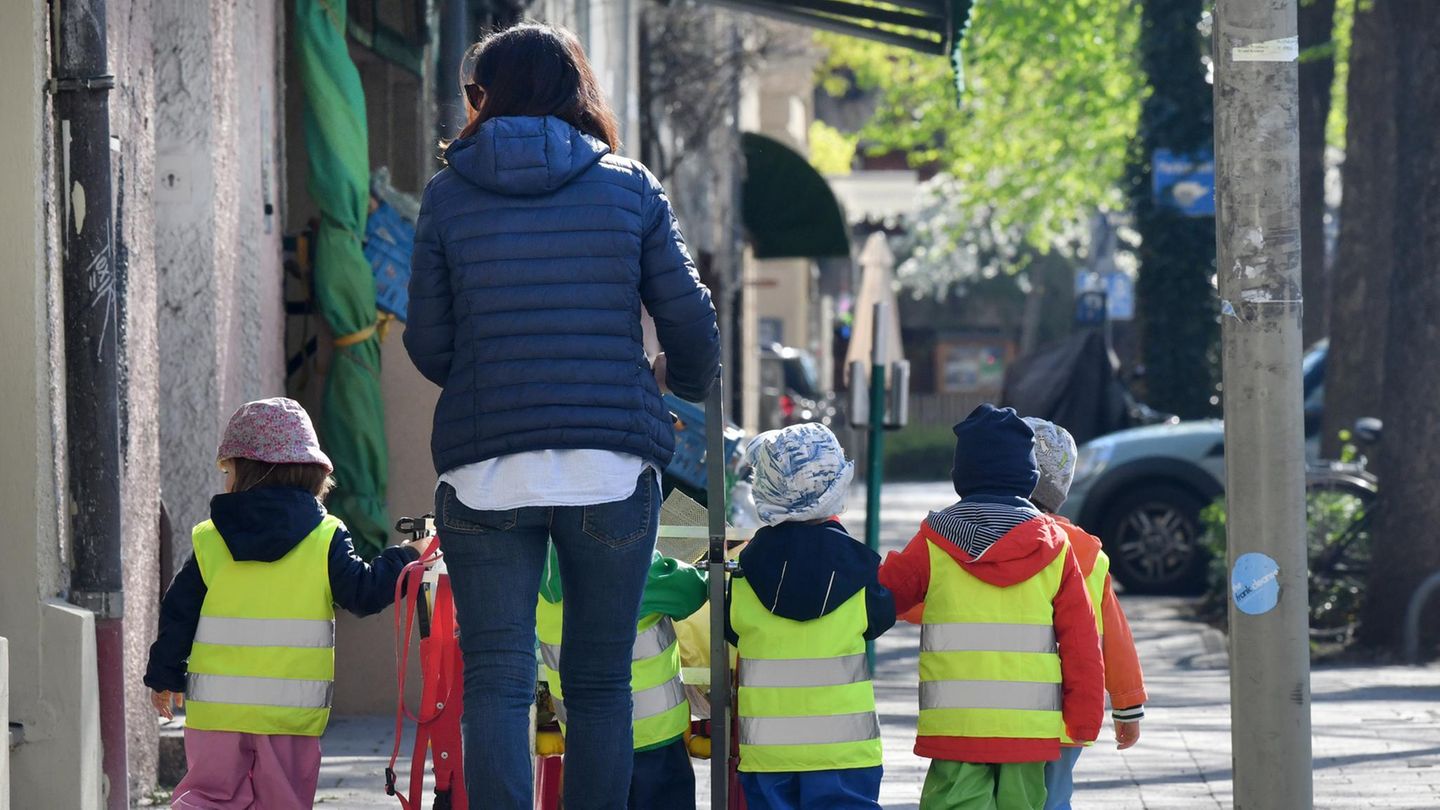The elections in Thuringia and Saxony represent a historic turning point. Do they demonstrate a division in society? Renowned scientists also have ideas on how to bridge the gap.
“Radical right in German federal state on the verge of first election victory since World War II” was the “breaking news” that the British BBC sent out to the whole world on Sunday evening. Without a doubt: It is a historic turning point that for the first time in a federal state, a party classified as right-wing extremist, the AfD in Thuringia, has become the strongest force.
Political scientist and author Marcel Lewandowsky (“What Populists Want”) finds one conclusion particularly important: the AfD and the relatively new Sahra Wagenknecht coalition are not protest parties. “To claim that this is all a reaction to the traffic light coalition is a short-term tactic, but not a good analysis,” stressed the populism researcher in an interview with the German Press Agency. “The traffic light coalition is playing its part, but we have similar developments in France, Austria, and the Netherlands – so this is not something that is only happening in Germany.”
Researchers: AfD voters are not protest voters
There is something reassuring about the idea that the votes for the AfD – which in Thuringia and Saxony is classified as definitely right-wing extremist by the state Office for the Protection of the Constitution – are only about protest. But Lewandowsky is convinced that this is not true: “These voters vote for the AfD because they agree with their positions, especially with migration and social policy. That is one thing. And the other is that the AfD also makes a kind of democratic promise by saying: We will bring you back the democracy that the political elites have taken away from you.” That is why AfD voters do not see themselves as enemies of the constitution, but on the contrary as the only true democrats.
Communication and political scientist Andrea Römmele from the Hertie School in Berlin shares a similar view: “For AfD voters, migration and security are the most important issues, and that is where they see the AfD as having the greatest competence.”
According to Lewandowsky’s findings, a large proportion of AfD voters are filled with deep mistrust – mistrust of the political elite, but also of others who are perceived as different: experts, journalists, academically educated city dwellers – “they all tend to be seen as enemies”. This polarizing view has built up during the Corona pandemic.
The AfD is number 1 among young people
Among young voters in Saxony and Thuringia, the AfD even came in first place in the elections without a challenge. Generational researcher Rüdiger Maas sees this as an expression of the party’s normalization: “The AfD is not perceived as directly right-wing extremist,” he says. Many young people see themselves as politically centrist, but then vote for the AfD.
Römmele sees another East German peculiarity that had an impact on the elections: “Compared to West Germany, the situation is more volatile. We have fewer people with firm party ties. That means: people are much more open to fluctuation, for the moment.” In the 2021 federal election, the SPD performed comparatively well in Thuringia and Saxony.
Another striking feature is the striking difference between city and country: “In Erfurt and Jena, Leipzig and Dresden, the election results reflect those in West Germany, where you have a classically urban, very diverse audience. And then you have the smaller and medium-sized cities and the rural areas – and there is a world of difference between them.” This analysis comes from the sociologist and bestselling author Steffen Mau (“Trigger Points”).
Sociologist Mau: Politicians deliberately trigger the population
Mau – one of the most influential social commentators – speaks of a historic turning point for three reasons: firstly, because the AfD’s scope for action is now increasing enormously. Secondly, because the political culture is becoming “decivilized”. And thirdly, because the pressure on the other parties to forge coalitions against the AfD is growing.
“These are classic defensive coalitions that are intended to prevent the worst from happening, but which involve enormous risks for these parties,” Mau told the dpa. This is because each party has to give up part of its own program and take a step back: “If you think of the CDU: If they now have to work with the BSW, a party from a completely different political camp, then that will have repercussions for the CDU nationwide, because that can also scare off voters.” The AfD’s defense could play into its hands again.
All of this seems to be leading to German society drifting further and further apart. One of Maus’s central theses, however, is that “the social divide does not already exist, but is being created by political actors.” The method for this is “triggering”, the targeted pressing of certain buttons that make emotions boil over – for example “gender language” or “dentures for rejected asylum seekers”. This then intensifies the political debate, although surveys have repeatedly shown that there is actually a broad consensus across the various milieus on key issues.
“Polarization occurs primarily where political actors – I also call them polarization entrepreneurs – can successfully enforce discourses that separate groups over a longer period of time,” says Mau. “For example, between “green-left-wing elites” and those with “common sense” or between “locals” and “migrants”. “Culture struggle issues” such as gender are used to create social divisions and then exploit this in elections.
Football clubs and choirs as “preschools of democracy”
Political scientist Lewandowsky observes that representatives of other parties are also increasingly using this tactic of the right-wing populists – for example, the statement by CDU leader Friedrich Merz about the “little pashas” in German schools. “This has two effects: the issues of the right-wing populists are kept going. And the way in which right-wing populists talk about issues is legitimized.” Scientific studies and election results, however, show unanimously: “In the end, it is not the other parties that benefit from this, but the right-wing populists.”
What can be done to get people talking to each other again? Steffen Mau recommends citizens’ councils, whose members are drawn at random from the population. The background: Many voters of populist parties say that they feel left behind by the political process. This is where citizens’ councils could come into play as a new instrument of participation. They deal with specific issues such as energy supply or investments in a city district. “The advantage is that these citizens’ councils are immune to the accusation that decisions are always made by an elite cartel,” explains Mau. Studies have shown that the members of the citizens’ councils quickly calm down and discuss things objectively with each other. This cannot and should not replace party democracy. But: “It could be an extension to the house of democracy – especially in East Germany, where the parties have been put on the defensive.”
Political scientist Römmele believes it is crucial not to let the thread of conversation with other social groups break off in everyday life. “Home office is great, but it is important that work continues to take place in the workplace. That is where you meet people with different views, exchange ideas and enter into dialogue. Then there are football clubs and choirs – these are the preparatory schools of democracy. We all need to internalize this much more.”
Source: Stern
I have been working in the news industry for over 6 years, first as a reporter and now as an editor. I have covered politics extensively, and my work has appeared in major newspapers and online news outlets around the world. In addition to my writing, I also contribute regularly to 24 Hours World.




